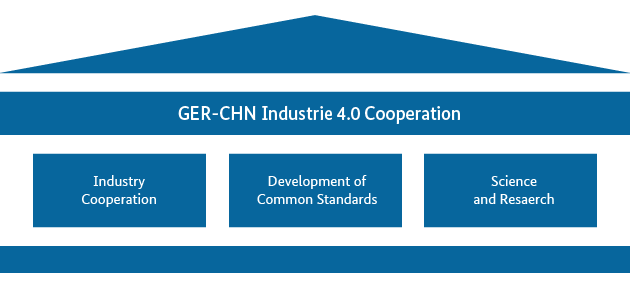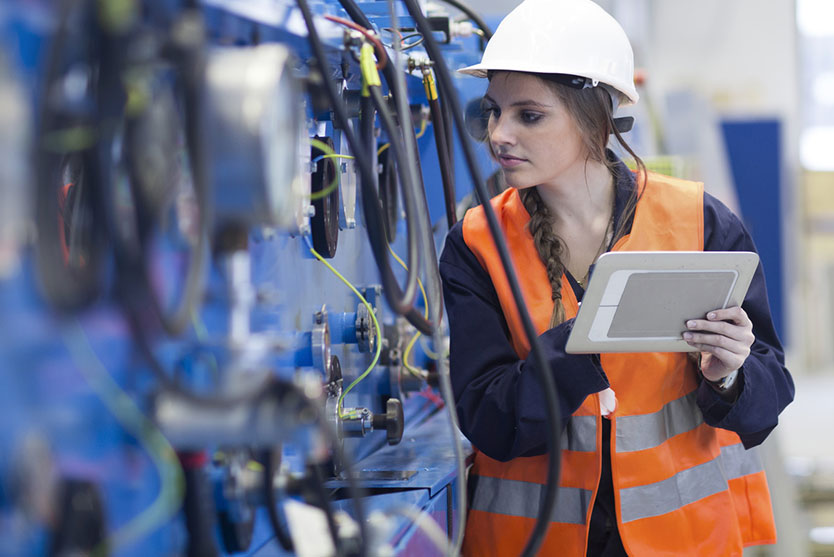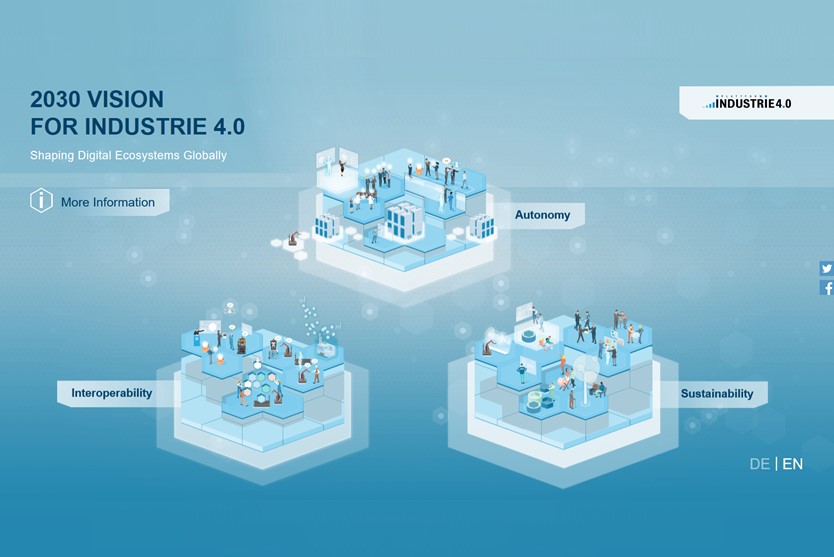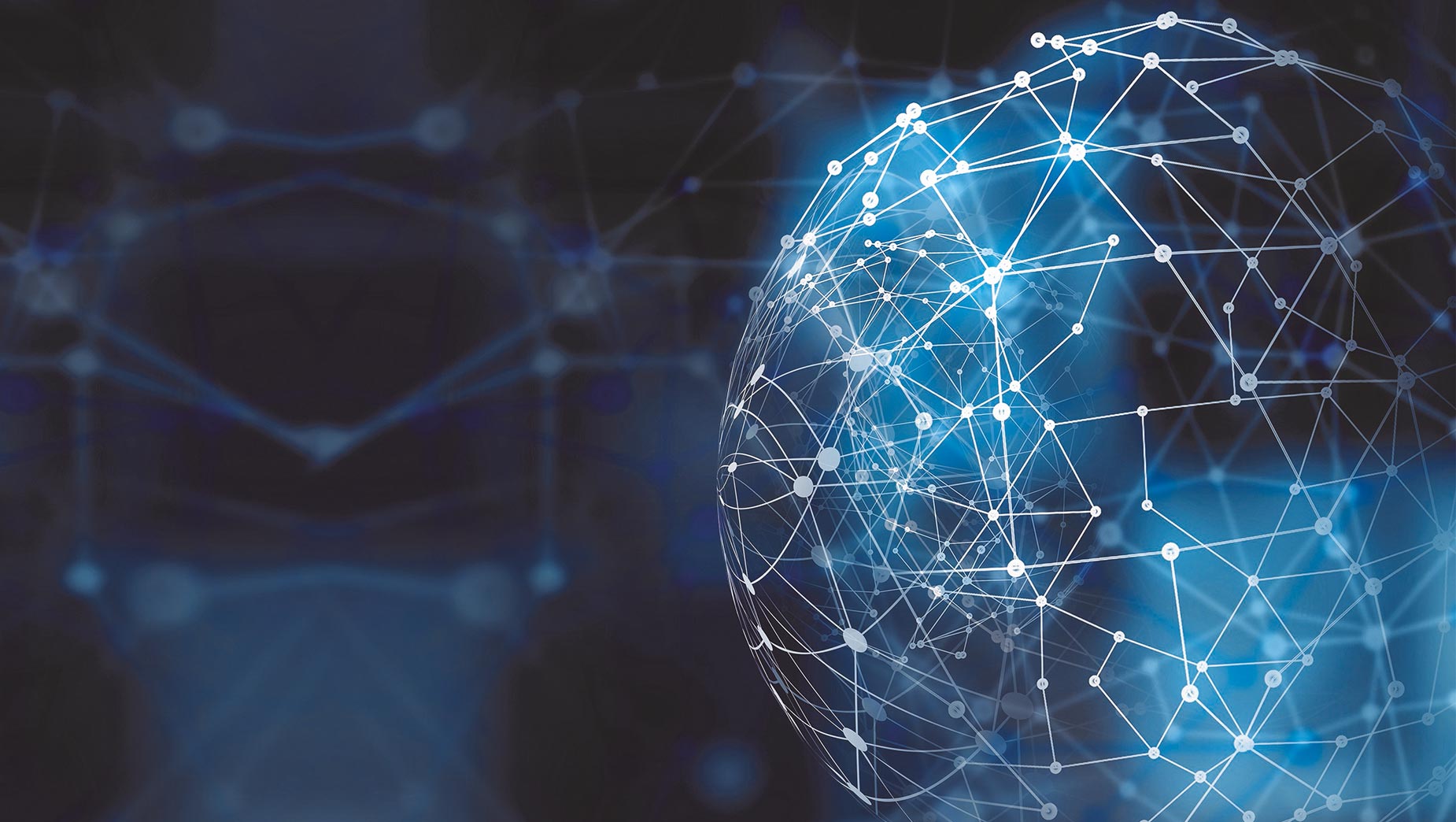Globally shaping the digital transformation of industry
In 2015, the German Federal Government laid the foundation for accelerating the digitalisation of the manufacturing sector. The Federal Ministry for Economic Affairs and Energy (BMWi) in Germany and the Ministry of Industry and Information Technology (MIIT) in China jointly agreed to establish a cooperation in the area of Industrie 4.0, the Fourth Industrial Revolution, based on a signed Memorandum of Understanding (MoU). The goal is to improve the business environment and regulatory framework for both German and Chinese enterprises and proactively shape the digital development of the manufacturing industry.
Achieving a successful digital transformation is one of the biggest challenges facing the manufacturing industry, which increasingly operates under new forms of economic activity in a global and digital ecosystem. Value creation networks, which are oftentimes very rigid, will become more flexible and globally connected. The rapid development of digital technologies and innovative business models is taking place across borders. In order to accelerate innovation and create jobs, a sovereign and safe exchange of data across company and country borders is necessary, amongst others. For this transformation to be successful, Germany collaborates with other leading manufacturing locations, such as China, to develop a common understanding for Industrie 4.0.
Sino-German Industrie 4.0 Cooperation
About 80 German and Chinese experts from industry and academia have been working together since October 2016 to formulate joint policy recommendations for both countries’ political and industry dialogues. The Expert Groups use practical application scenarios to show, for example, how enterprises can develop digital business models in the future. They demonstrate how Artificial Intelligence can be further applied in the manufacturing industry. They describe the regulatory framework and standards needed to connect humans, machines and products in global ecosystems. Last but not least, they analyse the qualifications employees need in the future working environment of the manufacturing industry and propose recommendations in order to timely prepare employees for the digital transformation.
The Sino-German Industrie 4.0 Cooperation is based on three pillars:

Since 2016, the Deutsche Gesellschaft für Internationale Zusammenarbeit (GIZ) GmbH, commissioned by BMWi, and the China Center for Information Industry Development (CCID) are the implementing bodies for the cooperation on the German and the Chinese side, respectively. The German project office in Beijing supports BMWi in implementing the cooperation with a team of around 10 members. The employees of GIZ are also contributing to the mutual understanding of industrial policies and the strengthening of industry cooperation. For this end, they are working closely together with German and Chinese experts from politics, industry and academia and hold a coordinating and advisory role.
|
Sino-German Standardisation and Science and Research Cooperation The sub-working group Industry 4.0 / Intelligent Manufacturing (UAG Industrie 4.0) of the Sino-German Commission for Cooperation in Standardisation (DCKN) is a significant platform for bilateral exchange on standardisation for Industrie 4.0 and Intelligent Manufacturing. Founded in May 2015, it promotes the development of joint positions, working papers and standardisation recommendations for international standardisation organisations such as IEC and ISO. The technical exchange aims at identifying potential deviations, closing existing gaps in standardisation and harmonising guidelines. For more information about the standardisation cooperation, please refer to Standardization Council Industrie 4.0 and Global Project Quality Infrastructure. Established in 2016 in form of bilaterally supported cooperation projects, the cooperation on Science and Research is coordinated by the Federal Ministry of Education and Research (BMBF). BMBF and the Ministry of Science and Technology (MoST) support cooperation projects in the topic areas of Intelligent Manufacturing (Industrie 4.0) and Smart Services. For current information about goals and the partners of the collaborative projects, please refer to the website of the Sino-German Cooperation Network. |
Strengthening the political and industry dialogue
The highlight of the Sino-German cooperation is the Sino-German Annual Conference of State Secretaries and Vice Ministers on Intelligent Manufacturing, which alternates between taking place in Germany or China. Within the scope of this political dialogue, both sides discuss current developments in Industrie 4.0, present the progress and challenges of the cooperation as well as raise their expectations of the cooperation in the future. Furthermore, Sino-German experts present their policy recommendations to the political and industry dialogues.
The I4.0 Project regularly holds additional conferences, such as the Sino-German Conference “Digitising with China” as part of the Hanover Fair.




